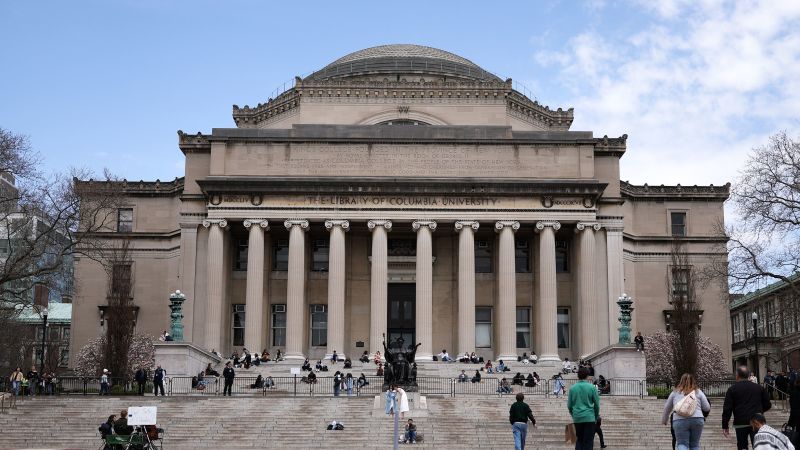Columbia University Settles Class Action for $9 Million over Misleading Rankings
Columbia University has reached a substantial preliminary settlement of $9 million in a proposed class action lawsuit filed by students who accused the prestigious institution of falsifying data to enhance its standing in the influential U.S. News & World Report college rankings. This settlement aims to address claims that the university misrepresented critical information that ultimately influenced students’ enrollment decisions and tuition costs.
Details of the Settlement
The preliminary settlement, which is subject to court approval, was disclosed in federal court in Manhattan. Students alleged that Columbia systematically misreported data, which contributed to its rise to the prestigious No. 2 position in the 2022 rankings. Among the inaccuracies pointed out were claims that 83% of its classes had fewer than 20 students, a statistic that suggests an intimate learning environment that many prospective students pay a premium for.
Impact on Students
The lawsuit involved approximately 22,000 undergraduate students spanning multiple schools within Columbia, including Columbia College, Columbia Engineering, and the School of General Studies, covering the period from the fall of 2016 to the spring of 2022. The plaintiffs argued that the misleading reports not only deceived them into enrolling but also resulted in inflated tuition fees, exploiting the students’ trust in the university’s advertised quality of education.
Legal Perspectives
The settlement has been deemed fair and adequate by the lawyers representing the students. However, Columbia University formally denied any wrongdoing, stating their agreement to settle was not an admission of guilt. In light of these developments, the university has expressed its regret over prior reporting deficiencies. To ensure transparency and honesty going forward, it has begun providing prospective students with data reviewed by an independent advisory firm.
The Degree of Influence of Rankings
The controversy surrounding Columbia University sparked further scrutiny into the rankings themselves. Notably, it has become apparent that many higher education institutions may feel pressured to engage in questionable practices to maintain or improve their standings. The suit was significantly influenced by a report published by Columbia math professor Michael Thaddeus, which accused the university of using misleading data to achieve its ranking. Following the report’s findings, Columbia’s ranking dramatically fell to No. 18 just a few months later.
Changes in Columbia’s Participation in Rankings
In a notable shift, Columbia announced in June 2023 that its undergraduate programs would cease participation in the U.S. News rankings altogether. The university articulated concerns regarding the disproportionate weight such rankings have on prospective students’ decisions, stating that critical aspects of education quality cannot be effectively distilled into mere data points.
Broader Implications
Columbia’s decision to withdraw from the ranking system resonates with similar moves by other prestigious institutions, including Harvard and Yale, also choosing not to submit data for various programs. This trend raises questions about the reliability and integrity of such rankings, particularly as they pertain to evaluating educational quality in an increasingly competitive landscape.
Legal Fees and Distribution of Settlement Funds
As part of the settlement negotiations, lawyers representing the class of students plan to request up to one-third of the settlement amount for legal fees. This would leave approximately $6 million to be distributed among the impacted students, marking a significant financial step for those affected by the alleged misinformation.
The case reflects larger systemic issues within university ranking methodologies and the pressure institutions face when striving for academic prestige. As such developments unfold, both students and educational institutions are closely watching the implications of this settlement—an essential chapter in the ongoing dialogue about transparency, integrity, and trust in higher education.


